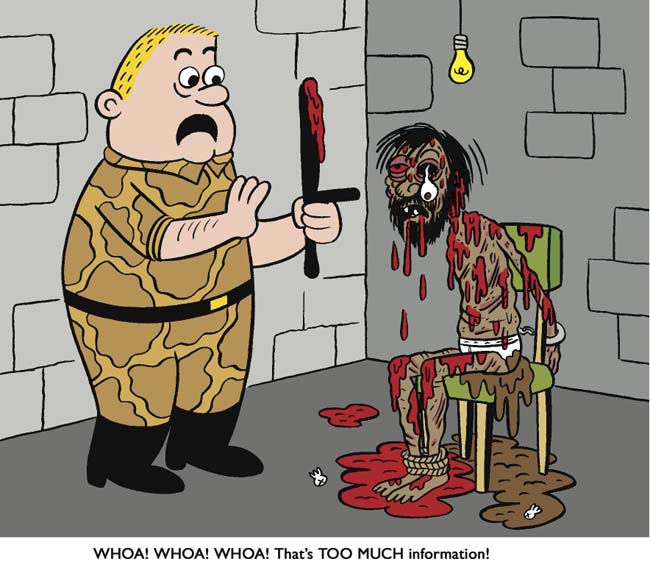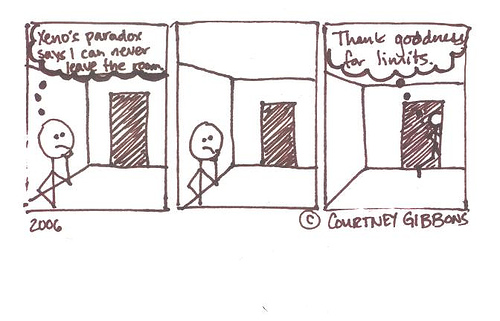A lot of the questions given on the test were detail oriented which I think wasn't payed enough attention to on my part so I am reviewing and sharing that knowledge from the discussion today.
Opening Statement: "Chronic remorse, as all the moralists are agreed, is a most undesirable sentiment."
Basically he is saying that being regretful is the worst feeling to have.
He felt that regretting the work he had done on Brave New World would mean that he would have to rewrite the book and being a different person as he was when he first wrote the story he would not only get rid of the faults and flaws but also of the great parts it originally possessed. For this reason he did not let chronic remorse affect his story.
He felt the biggest defect in his story was the fact that the Savage was only offered two alternatives which were an insane life in Utopia or the life of a primitive in an Indian village.
The author feels that if he could change that detail he would give the savage a third option which would be the option of sanity!
Setting: Central London Hatchery and Conditioning Centre (D.H.C.)
A.F. (After Ford ~Symbolism) 632 : This was the year that the story takes place in.
The italics that Huxley uses through chapter one on the story represents the ideas that are supposed to catch the readers attention. Not only that but also the ideas that the students, who are ferociously scribbling away, should/will take away from the lecture tour.
The Greek letters in the story represent the fact that individualism does not exist in this new world. The fact that all humans are categorized into Alpha, Beta, or Epsilon. These categories allow individuals to be filed along with others like a stack of papers.
The idea that the embryos where like the photographic film represents the fact that the embryos can be developed however the creator decides. So whatever mold is given to them is what the embryo will become.
Those or just some notes to help along the way if needed!^^
Tuesday, February 26, 2013
Monday, February 25, 2013
WRITINGAS5PECTATORSPORT
All of the work I'll be taking a look at and reviewing are from Christa Weston's blog.
Michelle Crosby
~ I didn't see a specific pre-write for that specific essay so that would be my first suggestion. All though it seemed she knew exactly where her train of thought was going you never know when that one little distraction can throw it off. However on the positive side I really like the first paragraph because it shows good understanding of the book chosen.
Mackenzie Greeley
~ I feel there was a lot of great ideas on the paper but.. maybe too many for that one paper. I think separating the pre-write from the general essay writing would have made it somewhat easier to follow and not be overwhelmed just looking at it. But I think the ideas and right approach are all there.
Iliana Gutierrez
~ Even though there is no essay for Iliana I think her pre-write is really awesome! I feel that just having that pre-write would make the process of writing the essay a lot easier. I like the fact that the pre-write is structured in the format her essay will take shape. I'm sure her essay would have been great if the time would have been given.
Elizabeth Hotchkiss
~ As with some of the essays above I would love to see a pre-write! I feel that is the time would have been taken there would actually be the beginning of a great essay. The one that I see now seems to kind of be lost or in many places so I feel that a pre-write would be a great tool for her.
Dr.Preston
~ I actually am happy that even Dr.Preston did one because it just shows the practice of a preacher. I feel that he didn't need to if he didn't want to because he already did all these tests...and obviously passed with flying colors. Anyways I can't really read his writing but I do appreciate his pre-write. It shows his own personal writing style. That is kind of what my pre-write would look like. Although it seems a but disorganized it works to the ability of every person.I think it was a job well done.
Michelle Crosby
~ I didn't see a specific pre-write for that specific essay so that would be my first suggestion. All though it seemed she knew exactly where her train of thought was going you never know when that one little distraction can throw it off. However on the positive side I really like the first paragraph because it shows good understanding of the book chosen.
Mackenzie Greeley
~ I feel there was a lot of great ideas on the paper but.. maybe too many for that one paper. I think separating the pre-write from the general essay writing would have made it somewhat easier to follow and not be overwhelmed just looking at it. But I think the ideas and right approach are all there.
Iliana Gutierrez
~ Even though there is no essay for Iliana I think her pre-write is really awesome! I feel that just having that pre-write would make the process of writing the essay a lot easier. I like the fact that the pre-write is structured in the format her essay will take shape. I'm sure her essay would have been great if the time would have been given.
Elizabeth Hotchkiss
~ As with some of the essays above I would love to see a pre-write! I feel that is the time would have been taken there would actually be the beginning of a great essay. The one that I see now seems to kind of be lost or in many places so I feel that a pre-write would be a great tool for her.
Dr.Preston
~ I actually am happy that even Dr.Preston did one because it just shows the practice of a preacher. I feel that he didn't need to if he didn't want to because he already did all these tests...and obviously passed with flying colors. Anyways I can't really read his writing but I do appreciate his pre-write. It shows his own personal writing style. That is kind of what my pre-write would look like. Although it seems a but disorganized it works to the ability of every person.I think it was a job well done.
Brave New World (1)
Twins? More like 96 of the same person...
Really living up to the motto of Community, Identity, Stability. What better way of achieving this goal then by controlling every possible aspect that makes up a human being. Controlling what life they will take on and putting the origins of the human through all possible trials they will face before they are even born. Being guided through this lab along with the students really gives you a sense of the environment and setting that this lab is. Mr.Foster seems to feels very excited and just like the director feel very positive that this plan and this creation of humans is the right thing. A new world in the future or just in general? Seeing as their is other plants creating about seventeen thousand people in labs in the amount of two years this process would really scare me!
I am however looking forward to what happens further into this story.
Really living up to the motto of Community, Identity, Stability. What better way of achieving this goal then by controlling every possible aspect that makes up a human being. Controlling what life they will take on and putting the origins of the human through all possible trials they will face before they are even born. Being guided through this lab along with the students really gives you a sense of the environment and setting that this lab is. Mr.Foster seems to feels very excited and just like the director feel very positive that this plan and this creation of humans is the right thing. A new world in the future or just in general? Seeing as their is other plants creating about seventeen thousand people in labs in the amount of two years this process would really scare me!
I am however looking forward to what happens further into this story.
Friday, February 22, 2013
First Quarter Review
a) Evaluate your performance so far this semester by explaining how you've done on required assignments and how you have moved forward on your Sr. Project/BQ/CWG;
For the most part I think I am putting good effort into my assignments but not good enough to get assignments in on time. Do to a lot of health issues this year... well semester I think it has cut into my performance quite a bit but I don't think I should let that be an excuse. Overall I know I can do better and I will especially with my collaborative groups in the page I made with them as well as with the collaborative group for my senior project.
b) List your goals and expectations of yourself for the next quarter
Next quarter I want to push myself to do everything completely and one hundred percent better. I want to push myself to get everything in on time even earlier. Stop procrastinating and push myself. I slack of and procrastinate to much this semester and I know I need to change that.
c) Make suggestions for course content/process.
I don't really have any suggestions at the time but I know if something pops up I will definitely let Dr.Preston know and talk to my classmates as well.
BOB1
These are the blogs that I consider most constant in work and the ones I can really look to when I am lost in how to start certain assignment
Ming Chen: http://mchenrhsenglitcomp.blogspot.com/
Danielle Galindo: http://danig14.blogspot.com/
Reed Conforti: http://rconfortirhsenglitcomp.blogspot.com/
Samantha Garrison: http://sgarrisonrhsenglitcomp.blogspot.com/
Valerie Gonzalez: http://vgonzalezrhsenglitcomp.blogspot.com/
Megan Hardisty: http://mhardistyrhsenglitcomp.blogspot.com/
Abby Kuhlman: http://akuhlmanrhsenglitcomp.blogspot.com/
Isiah Mabansag: http://isiahmabansag.blogspot.com/
Conor McNamara: http://www.csmrhsenglitcomp.blogspot.com/
Josh Ng: http://jngrhsenglitcomp.blogspot.com/
Nathan Oh: http://norhsenglitcomp.blogspot.com/
Matthew Patel: http://mpatelrhsenglitcomp.blogspot.com/
Felicitas Ruiz: http://fruizrhsenglitcomp.blogspot.com/
Erika Snell: http://www.esnellrhsenglitcomp.blogspot.com/
Justin Thompson http://jthompson2rhsenglitcomp.blogspot.com/
Ashley Wilburn: http://awilburnrhsenglitcomp.blogspot.com/
Chanel Yamaguchi: http://cyamaguchirhsenglitcomp.blogspot.com/
Devon Tomooka: http://dtomookarhsenglitcomp.blogspot.com/
Tanner Tuttle: http://ttuttlerhsenglitcomp1.blogspot.com/
These blogs have some missing information but some very good on the other hand.
Ryunhee Kim: http://rkimrhsenglitcomp.blogspot.com/
Travis Knight: http://tmkrhsenglitcomp.blogspot.com/
Cassidy Ashlock: http://cashlockrhsenglitcomp.blogspot.com/
Sebastian Guillen: http://sguillenrhsenglitcomp.blogspot.com/
Alicia Hernandez: http://ahernandezrhsenglitcomp.blogspot.com/
Haleigh Jones: http://hjonesrhsenglitcomp.blogspot.com/
Alex Lane: http://alanerhsenglitcomp.blogspot.com/
Troy Prober: http://tproberrhsenglitcomp.blogspot.com/
Brady Redman: http://bredmanrhsenglitcomp.blogspot.com/
These people I think should be a lot more encouraged to do more.
Brittany Cunningham: http://bcunninghamrhsenglitcomp.blogspot.com/
Kristofer Green: http://kgreenrhsenglitcomp.blogspot.com/
Carly Koertge: http://ckoertgerhsenglitcomp.blogspot.com/
Lacey Mougeotte: http://lmougeotterhsenglitcomp1.blogspot.com/
Bailey Nelson: http://bnelsonrhsenglitcomp.blogspot.com/
Karianne LaPlante: http://kariannelaplantesblog.blogspot.com/
Colleen Livingstone: http://clivingstonerhsenglitcomp.blogspot.com
Conner Patzman: http://cpatzmanrhsenglitcomp.blogspot.com/
Jason Reinwald: http://www.jreinwaldrhsenglitcomp.blogspot.com/
Ming Chen: http://mchenrhsenglitcomp.blogspot.com/
Danielle Galindo: http://danig14.blogspot.com/
Reed Conforti: http://rconfortirhsenglitcomp.blogspot.com/
Samantha Garrison: http://sgarrisonrhsenglitcomp.blogspot.com/
Valerie Gonzalez: http://vgonzalezrhsenglitcomp.blogspot.com/
Megan Hardisty: http://mhardistyrhsenglitcomp.blogspot.com/
Abby Kuhlman: http://akuhlmanrhsenglitcomp.blogspot.com/
Isiah Mabansag: http://isiahmabansag.blogspot.com/
Conor McNamara: http://www.csmrhsenglitcomp.blogspot.com/
Josh Ng: http://jngrhsenglitcomp.blogspot.com/
Nathan Oh: http://norhsenglitcomp.blogspot.com/
Matthew Patel: http://mpatelrhsenglitcomp.blogspot.com/
Felicitas Ruiz: http://fruizrhsenglitcomp.blogspot.com/
Erika Snell: http://www.esnellrhsenglitcomp.blogspot.com/
Justin Thompson http://jthompson2rhsenglitcomp.blogspot.com/
Ashley Wilburn: http://awilburnrhsenglitcomp.blogspot.com/
Chanel Yamaguchi: http://cyamaguchirhsenglitcomp.blogspot.com/
Devon Tomooka: http://dtomookarhsenglitcomp.blogspot.com/
Tanner Tuttle: http://ttuttlerhsenglitcomp1.blogspot.com/
These blogs have some missing information but some very good on the other hand.
Ryunhee Kim: http://rkimrhsenglitcomp.blogspot.com/
Travis Knight: http://tmkrhsenglitcomp.blogspot.com/
Cassidy Ashlock: http://cashlockrhsenglitcomp.blogspot.com/
Sebastian Guillen: http://sguillenrhsenglitcomp.blogspot.com/
Alicia Hernandez: http://ahernandezrhsenglitcomp.blogspot.com/
Haleigh Jones: http://hjonesrhsenglitcomp.blogspot.com/
Alex Lane: http://alanerhsenglitcomp.blogspot.com/
Troy Prober: http://tproberrhsenglitcomp.blogspot.com/
Brady Redman: http://bredmanrhsenglitcomp.blogspot.com/
These people I think should be a lot more encouraged to do more.
Brittany Cunningham: http://bcunninghamrhsenglitcomp.blogspot.com/
Kristofer Green: http://kgreenrhsenglitcomp.blogspot.com/
Carly Koertge: http://ckoertgerhsenglitcomp.blogspot.com/
Lacey Mougeotte: http://lmougeotterhsenglitcomp1.blogspot.com/
Bailey Nelson: http://bnelsonrhsenglitcomp.blogspot.com/
Karianne LaPlante: http://kariannelaplantesblog.blogspot.com/
Colleen Livingstone: http://clivingstonerhsenglitcomp.blogspot.com
Conner Patzman: http://cpatzmanrhsenglitcomp.blogspot.com/
Jason Reinwald: http://www.jreinwaldrhsenglitcomp.blogspot.com/
Tuesday, February 19, 2013
Lit Terms 108-End
1. Rhetorical Question: question suggesting its own answer not requiring an answer; used in argument or persuasion.

2. Rising Action: plot build up, caused by conflict and
complications, advancement toward climax.

3. Romanticism: movement in western culture beginning in the
eighteenth and peaking in the nineteenth century as a revolt against
Classicism; imagination was valued over reason and fact.

4. Satire: ridicules or condemns the weakness and wrong
doings of indivduals, groups, institutions, or humanity in general.

5. Scansion: the analysis of verse in terms of meter.

6. Setting: the time and place in which events in a short
story, novel, play, or narrative poem occur.

7. Simile: a figure of speech comparing two essentially
unlike things through the use of a specific word of comparison.

8. Soliloquy: an extended speech, usually in a drama,
delivered by a character alone on stage.

,
9. Spiritual: a folk song, usually on a religious theme.

10. Speaker: a narrator, the one speaking.

11. Stereotype: cliché; a simplified, standardized
conception with a special meaning and appeal for members of a group; a formula
story.

12. Stream of Consciousness: the style of writing that attempts
to imitate the natural flow of a character's thoughts, feelings, reflections,
memories, and mental images, as the character experiences them.
13. Structure: the planned framework of a literary
selection; its apparent organization.

14. Style: the manner of putting thoughts into words; a
characteristic way of writing or speaking.
15. Subordination: the couching of less important ideas in
less important structures of language.

16. Surrealism: a style in literature and painting that
stresses the subconscious or the nonrational aspects of man's existence
characterized by the juxtaposition of the bizarre and the banal.
17. Suspension of Disbelief: suspend not believing in order
to enjoy it.

18. Symbol: something which stands for something else; yet
has a meaning of its own.

19. Synesthesia: the use of one sense to convey the
experience of another sense.

20. Synecdoche: another form of name changing, in which a
part stands for the whole.
21. Syntax: the arrangement and grammatical relations of
words in a sentence.

22. Theme: main idea of the story; its message(s).
23. Thesis: a proposition for consideration, especially one
to be discussed and proved or disaproved: the main idea.
24. Tone: the devices used to create the mood and atmosphere
of a literary work; the author's perceived point of view.

25. Tongue in Cheek: a type of humor in which the speaker
feigns seriousness; a.k.a. "dry" or "dead pan"
Monday, February 18, 2013
I AM HERE!!!!
My SMART Goal is complete for the year! At least the major first part of it. Of course now I must work on passing the AP exam along with all my fellow classmates. As for the senior project we are working out scripts and characters buuuut no real action yet. I know it will happen though because I have a very responsible group. I AM HERE! Just busy half the time with family issue and other event but little by little I am making the progress that needs to be made!
Saturday, February 16, 2013
Lit Terms 83-108
1. Omniscient Point of View: knowing all things, usually the
third person.

2. Onomatopoeia: use of a word whose sound in some degree
imitates or suggests its meaning.

3. Oxymoron: a figure of speech in which two contradicting
words or phrases are combined to produce a rhetorical effect by means of a
concise paradox.

4. Pacing: rate of movement; tempo.
5. Parable: a story designed to convey some religious
principle, moral lesson, or general truth.
6. Paradox: a statement apparently self-contradictory or
absurd but really containing a possibe truth; an opinion contrary to generally
accepted ideas.

7. Parallelism: the principle in sentence structure that
states elements of equal functions should have equal form.
8. Parody: an imitation of mimicking of a composition or of
the style of a well-known artist.

9. Pathos: the ability in literature to call forth feelings
of pity, compassion, and/or sadness.
10. Pedantry: a display of learning for its own sake.

11. Personification: a figure of speech attributing human
qualities to inanimate objects or abstract ideas.

12. Plot: a plan or scheme to accomplish a purpose.

13. Poignant: eliciting sorrow or sentiment.

14. Point of View: the attitude unifying any oral or written
argumentation; in description, the physcial point from which the observer views
what he is describing.

15. Postmodernism: literature characterized by
experimentation, irony, nontradictional forms, multiple meanings, playfulness
and blurred boundary between real and imaginary.
16. Prose: the ordinary form of spoken and written language;
language that does not have a regular rhymen pattern.

17. Protagonist: the central character in a work of fiction;
opposes antagonist.

18. Pun: play on words; the humorous use of a word emphasizing
different meanings or applications.

19. Purpose: the intended result wished by an author.
20. Realism: writing about the ordinary aspects of life in a
straightforward manner to reflect life as it actually is.

21. Refrain: a phrase or verse recurring at intervals in a
poem or song; chorus.
22. Requiem: any chant, dirge, hymn, or musical service for
the dead.

23. Resolution: point in a literary work at which the chief
dramatic complication is worked out; denouement.

24. Restatement: idea repeated for emphasis.
25. Rhetoric: use of language, both writeen and verbal in
order to persuade.

Tuesday, February 5, 2013
Lit Terms 57-82
58. IMPLICATION: The conclusion that can be drawn from something, although it is not explicitly stated.

59. INCONGRUITY: The deliberate joining of opposites or of elements that are not appropriate to each other.

60. INFERENCE: A conclusion reached on the basis of evidence and reasoning

61. IRONY: The expression of one's meaning by using language that normally signifies the opposite, typically for humorous or emphatic effect.

62. INTERIOR MONOLOGUE: A piece of writing expressing a character's inner thoughts.

63. INVERSION: words out of order for emphasis

64. JUXTAPOSITION: the act of positioning close together (or side by side); "it is the result of the juxtaposition of contrasting colors"

65. LYRIC: a poem having musical form and quality.

66.MAGICAL REALISM: A genre developed in Latin America with juxtaposes the everyday with with the marvelous or magical

67. METAPHOR: An analogy that compare two different things imaginatively

68. EXTENDED: A metaphor that is extended or developed as far as the writer wants it to go.
69. CONTROLLING: A metaphor that runs throughout the piece of work.
70. MIXED: A metaphor that is ineffectively blends two or more analogies.
71. METONYMY: The substitution of the name of an attribute or adjunct for that of the thing meant, for example suit for business executive.

72. MODE OF DISCOURSE: Arguments(persuasion) , narration, description, and exposition

73. MODERNISM: A style or movement in the arts that aims to break with classical and traditional forms

74. MONOLOGUE: A long speech by one actor in a play or movie, or as part of a theatrical or broadcast program.

75. MOOD: the predominating atmosphere evoked by a literary piece.

76. MOTIF: A recurring feature in a piece of literature,
 .
.
77. MYTH:

78. NARRATIVE: A story or description of events.

79. NARRATOR: One who narrates or tells a story.

80. NATURALISM: Extreme form of relism

81. NOVELETTE/ NOVELLA : A short story

82. OMNISCIENT POINT OF VIEW: knowing all things, usually the third person


59. INCONGRUITY: The deliberate joining of opposites or of elements that are not appropriate to each other.

60. INFERENCE: A conclusion reached on the basis of evidence and reasoning
61. IRONY: The expression of one's meaning by using language that normally signifies the opposite, typically for humorous or emphatic effect.

62. INTERIOR MONOLOGUE: A piece of writing expressing a character's inner thoughts.

63. INVERSION: words out of order for emphasis

64. JUXTAPOSITION: the act of positioning close together (or side by side); "it is the result of the juxtaposition of contrasting colors"

65. LYRIC: a poem having musical form and quality.

66.MAGICAL REALISM: A genre developed in Latin America with juxtaposes the everyday with with the marvelous or magical

67. METAPHOR: An analogy that compare two different things imaginatively

68. EXTENDED: A metaphor that is extended or developed as far as the writer wants it to go.
69. CONTROLLING: A metaphor that runs throughout the piece of work.
70. MIXED: A metaphor that is ineffectively blends two or more analogies.
71. METONYMY: The substitution of the name of an attribute or adjunct for that of the thing meant, for example suit for business executive.

72. MODE OF DISCOURSE: Arguments(persuasion) , narration, description, and exposition

73. MODERNISM: A style or movement in the arts that aims to break with classical and traditional forms

74. MONOLOGUE: A long speech by one actor in a play or movie, or as part of a theatrical or broadcast program.

75. MOOD: the predominating atmosphere evoked by a literary piece.
76. MOTIF: A recurring feature in a piece of literature,
 .
.77. MYTH:

78. NARRATIVE: A story or description of events.

79. NARRATOR: One who narrates or tells a story.

80. NATURALISM: Extreme form of relism

81. NOVELETTE/ NOVELLA : A short story

82. OMNISCIENT POINT OF VIEW: knowing all things, usually the third person

Subscribe to:
Comments (Atom)